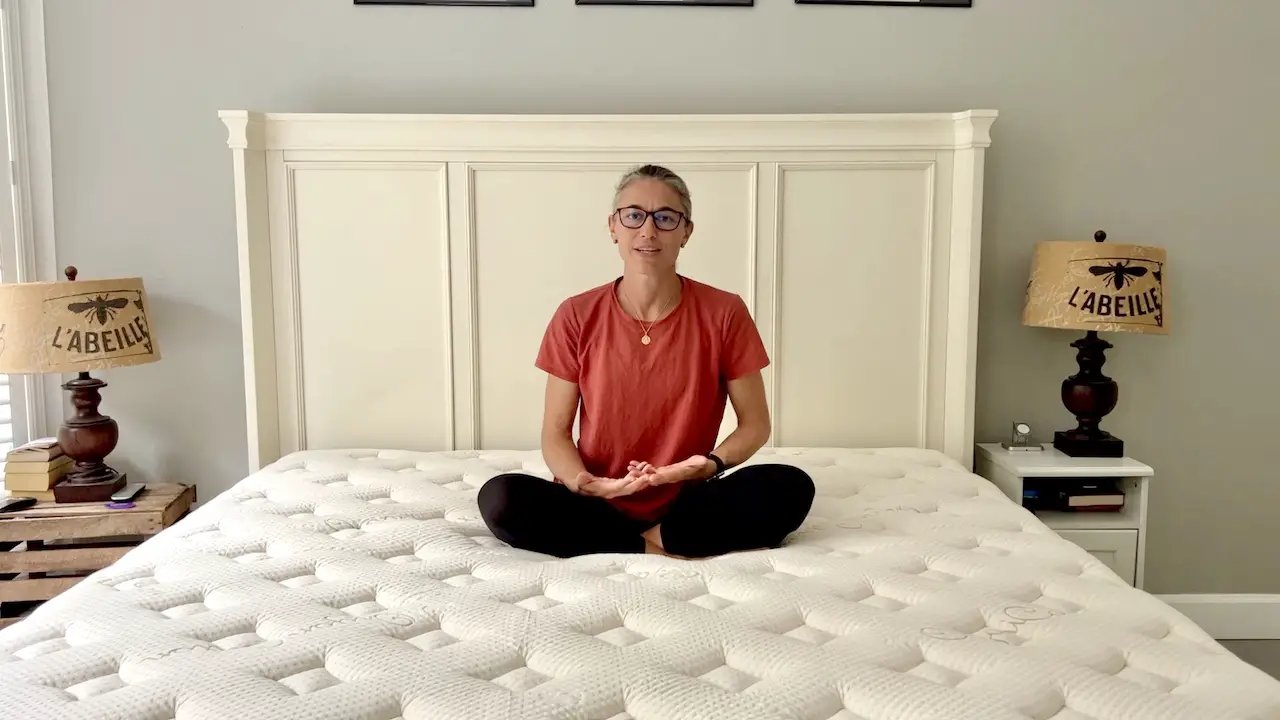HOW DOES SLEEP IMPROVE MEMORY?
Make Sleep a Priority for Better Memory
In today’s fast-paced world, where productivity is often prioritized over rest, many underestimate the powerful connection between sleep and memory. Whether you are a student cramming for an exam, a professional preparing for a big presentation, or simply someone wanting to stay sharp, understanding how sleep improves memory can give you a significant edge.
Let’s take a closer look at the fascinating science behind memory and sleep, the different types of memory, how various stages of sleep play a role in memory consolidation, and how to optimize your sleep environment—yes, including your mattress and bedding—for better mental performance.
Let’s dive into the details and discover exactly how sleep improves memory and why a good night’s sleep might be more powerful than a late-night study session.
Table of Contents
Understanding Memory and Sleep
Memory is the brain’s ability to encode, store, and retrieve information. But memory doesn’t work in isolation. It is deeply influenced by your daily habits—especially sleep.
The phrase “sleep improve memory” is more than just a catchy slogan our grandmas used to encourage learning math formulas at night!
Scientists have spent decades exploring how sleep supports memory formation. They have found that both short-term and long-term memories are strengthened during sleep, especially when you get enough deep and REM sleep.
Types of Memory Affected by Sleep
To understand how sleep improves memory, it is important to recognize the three main types of memory:
1. Declarative Memory: This includes facts and information you can consciously recall, like names, dates, or vocabulary. Think of it as your mental filing cabinet.
2. Procedural Memory: This is memory related to skills and tasks, like riding a bike, typing, or playing a musical instrument.
3. Emotional Memory: Emotional memory helps you remember experiences associated with strong feelings—both positive and negative.
Research shows that all three types of memory benefit from quality sleep, though they may be processed during different stages of the sleep cycle.
How Sleep Improves Memory: The Science
The phrase “sleep improve memory” is grounded in neuroscience. When you sleep, your brain isn’t shutting down—it is incredibly active. Here’s what happens behind the scenes:
Memory consolidation: During sleep, especially slow-wave sleep (SWS) and REM sleep, your brain replays the day’s experiences and transfers important data from short-term storage (the hippocampus) to long-term storage (the neocortex).
Synaptic pruning: Sleep also helps the brain “declutter” by removing irrelevant information and strengthening important neural connections.
Neuroplasticity: This is your brain’s ability to adapt and change. High-quality sleep supports neuroplasticity, which is essential for learning and memory.
In essence, you are not just resting—you’re mentally uploading and organizing.
Stages of Sleep and Their Role in Memory Consolidation
A full sleep cycle lasts about 90 minutes and includes four stages. Here’s how each one contributes to memory:
1. Stage 1 (Light Sleep)
Transition phase between wakefulness and sleep.
Prepares the brain for deeper stages of sleep.
2. Stage 2 (Light Sleep)
Brain waves slow down.
Prepares for memory consolidation in later stages.
3. Stage 3 (Slow-Wave Sleep or Deep Sleep)
Critical for declarative memory consolidation.
Helps store factual information, concepts, and general knowledge.
4. REM Sleep (Rapid Eye Movement)
Supports procedural and emotional memory.
The brain becomes highly active; dreams occur during this stage.
Helps with learning motor skills, creativity, and emotional balance.
Without completing these cycles, especially the deeper stages, memory formation suffers.
Sleep Deprivation and Memory Loss
Now that we know how sleep improves memory, it’s easy to see why sleep deprivation has serious cognitive consequences.
Lack of sleep can lead to:
Poor attention and focus, which impairs encoding of new information.
Weaker memory consolidation, meaning less information is stored properly.
Higher stress levels, which negatively affect the hippocampus (your brain’s memory center).
Increased forgetfulness and a harder time learning new skills.
A study published in Nature Neuroscience found that just one night of sleep deprivation can reduce learning efficiency by up to 40%.
How to Use Sleep to Improve Memory
So how exactly can you leverage sleep to boost memory? Here are some evidence-based tips:
1. Stick to a Sleep Schedule
Go to bed and wake up at the same time daily—even on weekends. Consistency supports your circadian rhythm, which enhances sleep quality.
2. Get Enough Sleep
Most adults need 7 to 9 hours of sleep per night. Teens and children need even more. Skimping on sleep robs your brain of essential memory consolidation time. Read our guide to understand how much sleep you need based on who you are.
3. Nap Strategically
Short naps (20–30 minutes) can enhance alertness and boost memory, especially if you are learning new material.
4. Avoid Sleep Disruptors
Limit caffeine and alcohol, especially late in the day. These substances can interfere with deep sleep and REM stages. Read our guide on what not to eat before bed, and stay away from certain foods and drink that will disrupt your ability to go to sleep.
5. Review Before Bed
If you’re studying or preparing for a big task, try reviewing the material before sleeping. The brain is more likely to store that information during the night.
The Best Sleep Environment for Memory Boost
Creating a sleep-conducive environment isn’t just about comfort—it’s about optimizing brain performance. Here’s how to set up your space:
1. Choose the Right Mattress
A mattress that supports healthy spinal alignment and reduces pressure points promotes uninterrupted sleep. Whether you prefer memory foam, hybrid, or latex, look for a mattress that suits your body type and sleep position.
2. Invest in Cooling Bedding
Overheating disrupts deep and REM sleep. Use breathable sheets, cooling comforters, and temperature-regulating pillows to stay comfortable through the night.
3. Minimize Noise and Light
Light pollution and loud sounds can fragment your sleep. Use blackout curtains, white noise machines, or sleep masks to protect your brain’s nightly memory work.
4. Keep Electronics Out
Blue light from screens interferes with melatonin production, delaying sleep and shortening REM time. Turn off electronics at least an hour before bed.
Mattresses That Support Cognitive Health
Your mattress can play a quiet yet powerful role in how well you sleep—and how well your memory functions. Look for these features:
Supportive core: Maintains spinal alignment, reducing micro-awakenings.
Pressure relief: Eases muscle tension so your body and mind relax deeply.
Motion isolation: Especially important if you share your bed—uninterrupted sleep is vital for memory consolidation.
Temperature regulation: Helps maintain a steady core body temperature, which is necessary for entering REM sleep.
Some memory-enhancing mattress recommendations:
Brooklyn Bedding Aurora Luxe: Excellent cooling and spinal support.
Nectar Premier Copper Memory Foam: Plush pressure relief and motion isolation.
Avocado Green Mattress: Natural latex for temperature regulation and firm support.
Purple Hybrid Premier: Grid structure promotes airflow and pressure relief.
Make Sleep a Priority for Better Memory
In the quest to stay sharp and productive, nothing beats a good night’s sleep. The evidence is clear: sleep improves memory by supporting consolidation, clearing mental clutter, and enhancing learning.
By prioritizing high-quality sleep—on the right mattress, with the right routine—you’re not only giving your body the rest it needs but also fueling your brain for optimal performance.
If you’ve ever asked yourself, “Can sleep really improve memory?”, the answer is a resounding yes. From students and creatives to professionals and seniors, better sleep equals better memory.
References
- Australian Academy of Science. Mapping out which parts of the brain are responsible for remembering. Retrieved from https://www.science.org.au/curious/people-medicine/all-our-different-types-memories
- Harvard Health. (2024). Sleep stages and memory. Retrieved from https://www.health.harvard.edu/healthbeat/sleep-stages-and-memory
- Nature Communications. (2017). Deep sleep maintains learning efficiency of the human brain. Retrieved from https://www.nature.com/articles/ncomms15405
FAQ
Most frequent questions and answers
Yes! Sleeping after studying allows your brain to consolidate and store the information more efficiently.
Short naps (20–30 minutes) can enhance alertness and memory, especially if taken shortly after learning.
Both stages are important. Deep sleep supports declarative memory, while REM is essential for emotional and procedural memory.
Indirectly, yes. Memory foam mattresses provide pressure relief and motion isolation, supporting deeper, undisturbed sleep which is essential for memory consolidation.
Does sleeping after studying help improve memory?
Yes! Sleeping after studying allows your brain to consolidate and store the information more efficiently.
Can naps improve memory?
Short naps (20–30 minutes) can enhance alertness and memory, especially if taken shortly after learning.
Is REM sleep more important than deep sleep for memory?
Both stages are important. Deep sleep supports declarative memory, while REM is essential for emotional and procedural memory.
Can memory foam mattresses help improve memory?
Indirectly, yes. Memory foam mattresses provide pressure relief and motion isolation, supporting deeper, undisturbed sleep which is essential for memory consolidation.
Share this deal with a friend!

Laura Georgieff
Laura is a mother of three who did not sleep through the night for the first 5.5 years of her kids' lives. She is passionate about sleep quality and loves sharing her experience and knowledge of all thing bedding! It is her mission to help you make the best decisions when it comes to sleep and help you get the best deal on the market!






